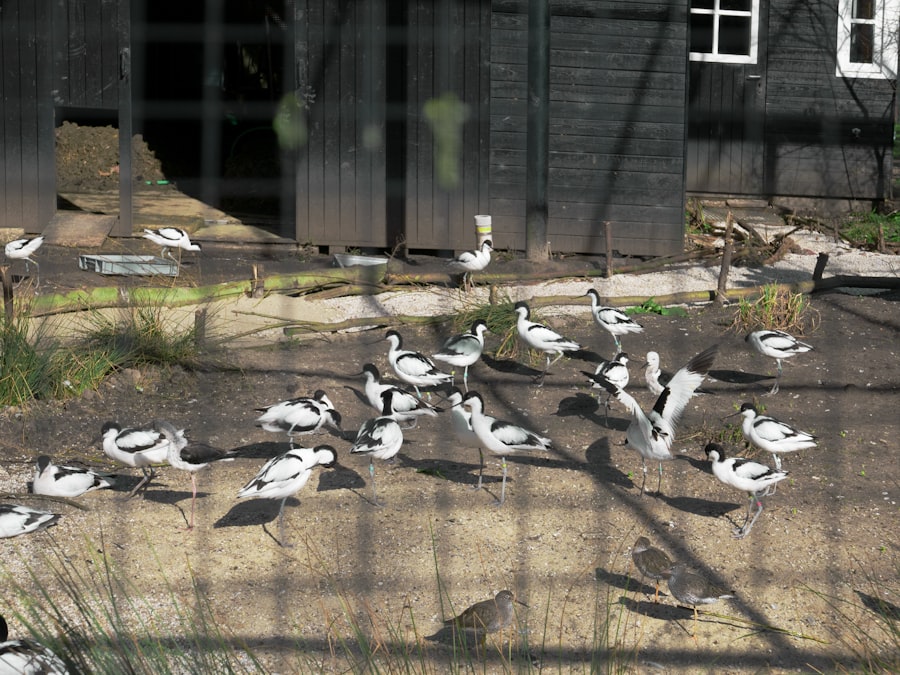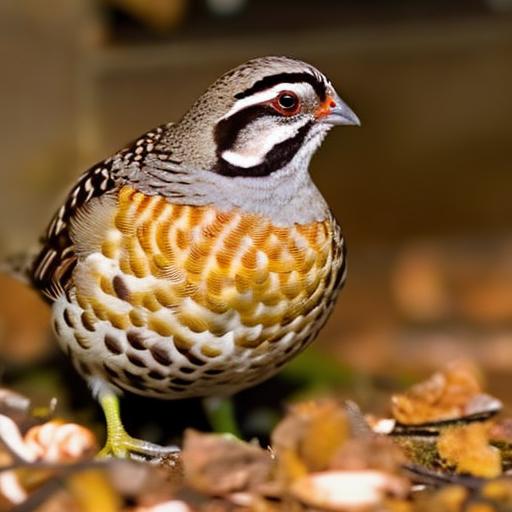Quail keeping has become increasingly popular among small-scale farmers and backyard enthusiasts due to the many benefits it offers. Quails are small, ground-dwelling birds that are relatively easy to care for and can be kept in small cages, making them an ideal choice for those with limited space. They are also prolific layers, producing delicious and nutritious eggs that are in high demand. In addition to their egg-laying capabilities, quails are also raised for their meat, which is lean and flavorful. With the right knowledge and care, quail keeping can be a rewarding and profitable venture for anyone interested in sustainable and self-sufficient living.
Quail keeping can be a fulfilling hobby or a source of supplemental income for those looking to diversify their farm or homestead. Whether you are a beginner or an experienced poultry keeper, quails are a great addition to any small-scale operation. In this article, we will explore the benefits of keeping quail in small cages, considerations for small cage quail keeping, proper housing and environment for quail, feeding and watering quail in small cages, as well as the health and welfare of quail in small cages. By the end of this article, you will have a comprehensive understanding of the advantages of small cage quail keeping and the necessary steps to ensure the well-being of your quail flock.
Key Takeaways
- Quail keeping is a rewarding hobby that can be done in small spaces, making it accessible to many people.
- Keeping quail in small cages can provide benefits such as easy maintenance, space efficiency, and reduced risk of disease transmission.
- When keeping quail in small cages, it’s important to consider factors such as cage size, ventilation, and cleanliness to ensure the birds’ well-being.
- Proper housing and environment for quail include providing adequate space, proper bedding, and suitable temperature and lighting conditions.
- Feeding and watering quail in small cages requires providing a balanced diet, access to clean water, and monitoring for any signs of illness or distress.
Benefits of Keeping Quail in Small Cages
Keeping quail in small cages offers several advantages for both the birds and the keeper. One of the main benefits is space efficiency. Quails are small birds that do not require a lot of space to thrive, making them well-suited for small cage systems. This is especially advantageous for urban or suburban farmers with limited space, as quails can be kept in compact cages without compromising their health and well-being. Additionally, small cage systems are easier to manage and clean, reducing the time and effort required for daily maintenance.
Another benefit of keeping quail in small cages is the ability to closely monitor individual birds. In larger, free-range systems, it can be challenging to keep track of each bird’s health and productivity. However, in small cage setups, it is easier to observe and care for each quail individually, allowing for early detection of any health issues or abnormalities. This level of oversight can lead to better overall flock management and improved productivity. Furthermore, small cage systems provide protection from predators and environmental hazards, ensuring the safety and security of the quail flock.
Considerations for Small Cage Quail Keeping
While there are many benefits to keeping quail in small cages, there are also important considerations to keep in mind to ensure the well-being of the birds. One key consideration is cage size and design. Quails require enough space to move around comfortably, stretch their wings, and exhibit natural behaviors such as dust bathing. When designing small cages for quail, it is essential to provide adequate space for each bird while maximizing the use of available space. Additionally, the cage design should allow for easy access for cleaning and maintenance.
Another consideration for small cage quail keeping is ventilation and air quality. Proper ventilation is crucial for maintaining a healthy environment within the cages and preventing respiratory issues in the birds. Adequate airflow helps regulate temperature, remove excess moisture, and reduce the buildup of ammonia from droppings. It is important to design small cage systems with ventilation in mind, ensuring that fresh air can circulate throughout the cages while minimizing drafts and temperature fluctuations.
In addition to cage size and ventilation, it is important to consider the social dynamics of quail flocks when keeping them in small cages. Quails are social birds that thrive in groups, but overcrowding can lead to stress, aggression, and reduced productivity. When keeping quails in small cages, it is essential to provide enough space for each bird and monitor their behavior to prevent overcrowding and social conflicts. By carefully considering these factors, small cage quail keepers can create a comfortable and healthy environment for their birds.
Proper Housing and Environment for Quail
Creating a suitable housing and environment for quail is essential for their health and well-being. When keeping quail in small cages, it is important to provide them with a secure and comfortable living space that meets their specific needs. The housing should protect the birds from predators, provide adequate ventilation, and allow for easy access for cleaning and maintenance. Additionally, the environment within the cages should mimic natural conditions as much as possible to promote natural behaviors and overall welfare.
Quails require a dry and clean living environment to thrive. When designing housing for quail, it is important to use materials that are easy to clean and disinfect, such as wire mesh or plastic-coated metal. The flooring should allow droppings to fall through easily, preventing the birds from coming into contact with their waste. Providing a layer of absorbent bedding material, such as wood shavings or straw, can help maintain a dry and comfortable living space for the birds.
In addition to proper housing, creating an enriching environment within the cages is important for the well-being of quail. Quails are active birds that enjoy scratching, dust bathing, and perching. Providing environmental enrichment such as perches, dust bathing areas, and objects for pecking can help satisfy their natural behaviors and reduce stress. Furthermore, access to natural light or full-spectrum lighting can help regulate their circadian rhythms and promote overall health and productivity. By carefully considering housing and environmental needs, small cage quail keepers can create a safe and stimulating living space for their birds.
Feeding and Watering Quail in Small Cages
Proper nutrition is essential for the health and productivity of quail kept in small cages. Quails have specific dietary requirements that must be met to support their growth, egg production, and overall well-being. When keeping quail in small cages, it is important to provide a balanced diet that meets their nutritional needs while ensuring access to clean water at all times.
Quails are omnivorous birds that require a diet high in protein to support their rapid growth and egg production. A commercial game bird feed or turkey starter feed with at least 24% protein is recommended for quails kept in small cages. Additionally, providing access to grit or insoluble materials can help quails digest their food more effectively. It is important to monitor their feed consumption and adjust feeding amounts based on their growth stage and production levels.
In addition to a balanced diet, access to clean water is crucial for quail health and productivity. Quails have high water requirements, especially during egg production, so it is important to ensure that they have constant access to fresh water. When keeping quail in small cages, it is important to provide waterers that are easily accessible and designed to prevent spills and contamination. Regularly cleaning and refilling waterers will help ensure that the birds have access to clean water at all times.
By providing a balanced diet and access to clean water, small cage quail keepers can support the health and productivity of their birds. Monitoring feed consumption and water intake can help identify any potential issues early on and make adjustments as needed to ensure optimal nutrition for the quail flock.
Health and Welfare of Quail in Small Cages

Maintaining the health and welfare of quail kept in small cages is essential for their long-term well-being and productivity. Small cage systems offer several advantages for monitoring bird health and behavior, but it is important to be proactive in preventing health issues and addressing any concerns promptly.
One key aspect of maintaining quail health in small cages is disease prevention. Preventing the spread of diseases within the flock requires good biosecurity practices, including regular cleaning and disinfection of cages, equipment, and footwear. Additionally, monitoring bird behavior and appearance can help identify any signs of illness early on so that appropriate measures can be taken to prevent further spread.
Another important consideration for quail welfare in small cages is managing stress levels within the flock. Overcrowding, social conflicts, or environmental stressors can lead to reduced productivity and increased susceptibility to disease. By providing adequate space, environmental enrichment, and a comfortable living environment, small cage quail keepers can help reduce stress levels within the flock.
Regular health checks by observing bird behavior, appearance, feed consumption, egg production, and overall flock dynamics can help identify any potential issues early on so that appropriate measures can be taken to address them promptly. Additionally, working with a veterinarian experienced in poultry health can provide valuable guidance on preventive care measures and treatment options if needed.
By prioritizing disease prevention, stress management, and regular health monitoring, small cage quail keepers can ensure the long-term health and welfare of their birds while maximizing their productivity.
The Advantages of Small Cage Quail Keeping
In conclusion, keeping quail in small cages offers several advantages for both the birds and the keeper. Small cage systems are space-efficient, easy to manage, and provide protection from predators and environmental hazards. They also allow for close monitoring of individual birds’ health and behavior while promoting a comfortable living environment.
When considering small cage quail keeping, it is important to carefully consider cage size and design, ventilation, social dynamics within the flock, housing materials, environmental enrichment, nutrition, water access, disease prevention, stress management, and regular health monitoring.
By prioritizing these considerations and implementing best practices for small cage quail keeping, farmers and backyard enthusiasts can create a safe and stimulating living space for their birds while supporting their long-term health and productivity. Whether you are interested in raising quails for eggs or meat production or simply enjoy keeping these fascinating birds as pets or hobby animals, small cage quail keeping can be a rewarding venture with the right knowledge and care.
If you’re considering keeping quail in small cages, it’s important to ensure that they have enough space to move around comfortably. According to a related article on PoultryWizard, the Producers Pride Sentinel Chicken Coop provides a suitable environment for quail, offering ample space and protection. This coop is designed to accommodate the needs of small poultry like quail, ensuring they have enough room to thrive while being kept in a confined space. For more information on this coop, you can check out the article here.
FAQs
What are the benefits of keeping quail in small cages?
Keeping quail in small cages can make it easier to manage and monitor their health and behavior. It also allows for better control of their environment and reduces the risk of injury or aggression among the birds.
What are the potential drawbacks of keeping quail in small cages?
Quail may experience stress and reduced quality of life in small cages, as they have limited space to move and express natural behaviors. It can also lead to health issues and decreased egg production.
What are the recommended cage dimensions for keeping quail in small cages?
The recommended minimum cage size for quail is 1 square foot per bird. However, larger cages are preferable to provide more space for the birds to move around and engage in natural behaviors.
How can I ensure the well-being of quail kept in small cages?
To ensure the well-being of quail in small cages, it is important to provide enrichment such as perches, dust baths, and hiding spots. Regular monitoring of their health and behavior is also crucial, as well as providing a balanced diet and clean living conditions.
Are there any legal or ethical considerations when keeping quail in small cages?
It is important to check local regulations and guidelines regarding the minimum space requirements for keeping quail in cages. Additionally, ethical considerations should be taken into account to ensure the birds’ well-being and quality of life.
Meet Walter, the feathered-friend fanatic of Florida! Nestled in the sunshine state, Walter struts through life with his feathered companions, clucking his way to happiness. With a coop that’s fancier than a five-star hotel, he’s the Don Juan of the chicken world. When he’s not teaching his hens to do the cha-cha, you’ll find him in a heated debate with his prized rooster, Sir Clucks-a-Lot. Walter’s poultry passion is no yolk; he’s the sunny-side-up guy you never knew you needed in your flock of friends!







